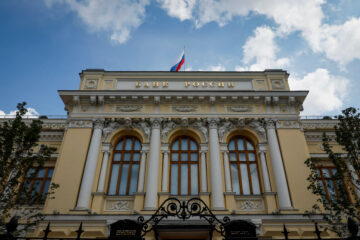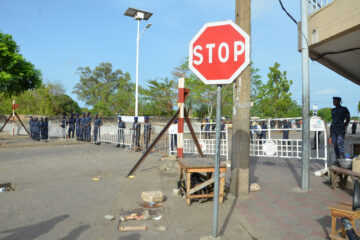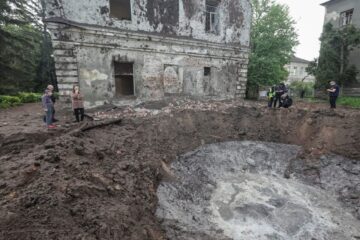Protests erupt in Turkey as death toll at coal mine reaches 245
A violent protest erupted Wednesday in the Turkish city of Soma, where at least 238 coal miners have died after a mine explosion. Many in the crowd expressed anger at Prime Minister Recep Tayyip Erdogan\’s government.
People in Soma hurled abuse as they surrounded Prime Minister Recep Tayyip Erdogan\’s car during his visit to the scene of the tragedy, and protesters clashed with police in Istanbul and Ankara.
An explosion on Tuesday caused the pit to collapse, killing at least 245.
Rescuers are still hunting desperately for scores of miners who are missing but feared dead.
Nearly 450 workers have been rescued, according to the mine operator. However, no survivors have been found in the last few hours and more than 100 are still unaccounted for.
Eighty of those rescued had been treated for injuries, none of which were described as serious.
Relatives have voiced anger over a lack of information. Amidst a massive security operation, Prime Minister Erdogan visited the mine, and protesters in Soma kicked his car while calling for the government to resign.
Local media reports said protesters in Soma kicked Erdogan\’s car and called for his resignation after he gave a news conference on the disaster.
He was booed as he emerged from his car. Some arrests were made amid the scuffles and pictures showed the prime minister, surrounded by bodyguards, seeking refuge in a shop. Protesters also attacked the town\’s ruling AK party offices.
In his defense, while speaking to journalists, Erdogan cited 19th century mining disasters in the United Kingdom, claiming such disasters were not confined to Turkey.
"About 204 people died in Britain after a mine collapse in 1838, 361 miners died there in 1866, and an explosion in 1894, 290 people died in Wales," said Erdogan.
He promised a thorough investigation into Tuesday\’s disaster.
Authorities say the collapse was caused by an electrical fault that ignited an explosion and fire, which is still believed to be burning in some parts of the mine.
The government is under increasing pressure after last month refusing parliamentary opposition calls to investigate the owners of the mine, over safety concerns.
Protests have been held outside the headquarters of the owners of the mine in Istanbul. Demonstrators wrote on the headquarters\’ walls, "This building is built on the blood of the workers."
A cold storage warehouse, usually used for food, and freezer trucks served as makeshift morgues as hospital facilities overflowed. Medical staff intermittently emerged from the hospital to read the names of survivors being treated inside, with families and fellow workers clamoring for information.
Teams of psychiatrists were being pulled together to help counsel the families of victims. Paramilitary police guarded the entrance to the mine to keep distressed relatives at a safe distance from the rescue effort.
There were calls on social media for protests in front of the Istanbul headquarters of Soma Komur Isletmeleri, the operator of the mine. The company said in a brief statement late on Tuesday that there had been “a grave accident” caused by an explosion in a substation but gave few other details.
At Istanbul\’s Taksim Square, two left-wing opposition newspaper vendors read out headlines to silent morning commuters. “Turkey is a graveyard for workers,” and “This wasn\’t an accident, this was negligence.”
At the mine, Turkish Energy Minister Taner Yildiz says rescue efforts are being hampered by high levels of carbon monoxide, which has caused those efforts to be repeatedly suspended. Oxygen is continuing to be pumped into the mine, which is more than a kilometer deep.
Most of the deaths are believed to have been caused by suffocation. The United States offered assistance to the Turkish government.
Earlier Erdogan announced three days of mourning for the victims.
Turkey\’s coal mines are notoriously dangerous, prompting some in parliament to demand an investigation into poor safety conditions.
The International Labor Organization ranked the EU candidate nation third worst in the world for worker deaths in 2012.
Turkey\’s rapid growth over the past decade has seen a construction boom and a scramble to meet soaring energy demands, with worker safety standards often failing to keep pace.
Its safety record for coal mining has been poor for decades, with its deadliest accident to date in 1992, when a gas blast killed 263 workers in the Black Sea province of Zonguldak.
Source: Agencies
[do_widget_area inner_adsbar]










